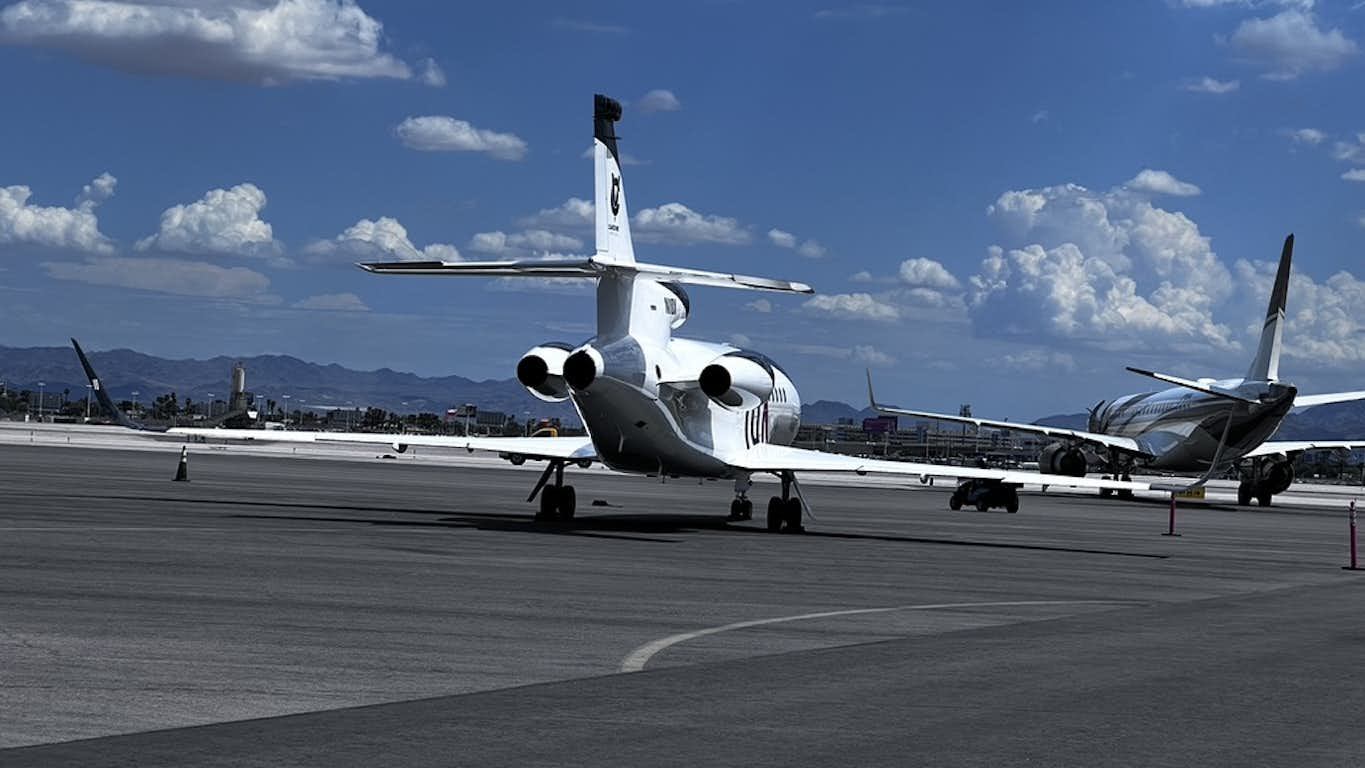
CJI Editor Alisdair Whyte noted that charter and jet card pricing was flat in the decade following the 2008 financial crisis.

According to a leading business aviation editor, the increased cost of flying privately is justified.
Speaking during the annual Jefferies Business Aviation Summit today, Alisdair Whyte, Editor of Corporate Jet Investor (pictured left), noted that charter and jet card pricing had been essentially flat in the decade following the 2008 financial crisis.
“From 2009 to 2019, charter rates didn’t really rise,” Whyte said.
Whyte added, “The first rule of business aviation is once you’ve discovered how good private aviation is, you keep flying privately until you can no longer afford it.”
He noted, “Customers need to pay more.”
According to a Private Jet Card Comparisons’ pricing analysis of over 80 providers and more than 1,000 program options, the average hourly rate for fixed-rate, guaranteed availability jet cards has increased by 22.6% since 2019.
Looking ahead, Whyte said, “It’s hard to forecast, but there is nothing particularly worrying.”
In terms of resilience, he noted that many predicted Russian sanctions after its invasion of Ukraine would dampen business. They didn’t.
He also said pundits who predicted Covid newcomers to private jets would quickly disappear were also wrong.
Whyte said the airlines help keep converts with business aviation despite increased costs.
“It’s so much better to fly privately,” he said.
While flight providers struggled with reliability in 2021 and 2022 as demand surged, he said consumers typically only stop flying privately if they run out of money or die.
Despite first-time aircraft buyers finding challenges after rushing in and buying older aircraft without pre-purchase inspections, “I’m not hearing masses of stories of people selling because they are unhappy.”
95% of Private Jet Card Comparisons subscribers who started flying privately after the pandemic still use private aviation.
Whyte described the current state of the market as “a little bit of stability, and that’s a good thing.”
He said companies and UHNWs in the Midwest U.S. who are suffering from poor airline connectivity and service remain an especially attractive target for private jet flight providers.
While the U.S. continues to carry global aviation, Whyte pointed to India and Saudi Arabia as emerging markets that could be significant demand generators.
The Saudi government wants to build the region’s largest private jet fleet and plans to open seven dedicated business aviation airports by the start of the new decade.
NetJets and Flexjet continue to be “on fire,” according to Whyte.
He said the established fractional operators benefited from pre-2020 orders secured at legacy pricing.
Fractional and jet card providers will continue to benefit from companies that want anonymity when flying as business aviation continues to be scrutinized.
Whyte posited that the downturn in the charter market is partly because the biggest companies, like the two leading fractional and other major fleet operators, such as Wheels Up and Vista Global, can now accommodate their customers on-fleet.
During the peak in demand, they were major buyers of third-party charters. They needed to accommodate their clients who had guaranteed availability that couldn’t be serviced on their own fleets.
Speaking about last week’s European Business Aviation Conference & Exhibition in Geneva, he noted, “The mood was amazingly upbeat.”
However, he warned that the industry should not take stability for granted.
“Aviation is always going to be cyclical, and business aviation is always going to be cyclical,” he said.
Whyte also said, “From an investor view, it’s a really hard business.”
He said, “It takes a special breed of person” to run an operator.
He pointed out the logistics of accommodating highly demanding flyers.
Consumers fly where they want and when they want, making it more difficult to manage than for airlines.
At the same time, private jet operators face supply chain and staffing challenges.
Speaking separately, Jet Linx CEO Brent Wouters said jet card sellers are challenged because fixed-rate jet card pricing is now stagnating while costs continue to increase.
READ: Why private aviation’s supply chain and labor crisis isn’t going away